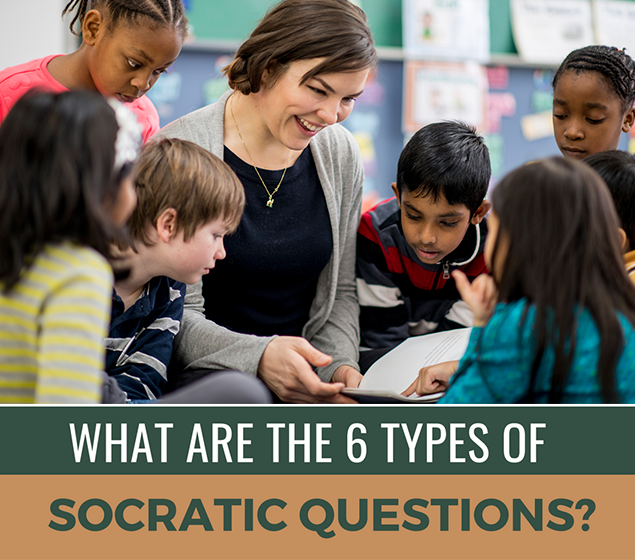6 Types of Socratic Questions that Stimulate Learning
Posted by Network Support · Leave a Comment
6 Types of Socratic Questions that Stimulate Learning
What is it?
A technique founded by the late Greek philosopher Socrates, Socratic Questioning is method of using Reflective Questions to draw answers from students.
Purpose of Socratic Questioning:
The primary purpose of Socratic Questioning is to channel and refine student thought processes to challenge their accuracy and help them achieve their ultimate goal – to improve their understanding of the topic.
Types of Socratic Questioning:
The following are the 6 types of Socratic Questions that are used to stimulate and challenge thinking:
| Type | What is it? | Examples |
| Conceptual Clarification Questions | These are questions that encourage students to reflect upon and critique the material in depth. This brings clarity to the thought process and enables students to form impressions and rationale with evidence. | “Why do you say that?” “Did you mean it like this?” “Can you give an example?” |
| Probing Assumptions | These questions make students critique and reflect on their own assumptions or beliefs on which they are basing their understanding. |
“How did you come to that assumption?” “Why do you choose to believe or assume that?” “Do you think that the assumption could be wrong?” |
| Probing Rationale, Reasons and Evidences | These questions help students to strengthen their arguments through deeper research into the material. |
“Where does it state that such an incident occurred?” “Are there any other pieces of evidence to support this claim?” “Based on what evidence are you making this statement?”
|
| Questioning Viewpoints and Perspectives | This type of questioning helps to broaden student perspective, and shows that there is more than one way of thinking about a topic. |
“What other alternatives do you feel it can point to?” “Is there any other meaning to what the author wrote?” “Do you this could have been what the author meant when he made that claim?”
|
| Probing Implications and Consequences | This questioning strategy stimulates students to consider the logic of their arguments and evidence. |
“How would this assumption affect…?” “What consequences will… have on…?” “What happens next?”
|
| Questions about the Question | This method encourages reflection and critical analysis of the session |
“Why do you think I asked…? “Why do you ask that?” “Can you tell me the meaning of your question?” |
Implementing Socratic Questioning in the Classroom
Select suitable text or material
- Divide students into pairs or small groups
- Instruct students to read, critique, and reflect on the material
- Initiate a discussion using Socratic Questions, allowing each group to voice their thoughts
As a conclusion, summarize the main ideas raised and determine whether there is consensus among student groups
Like this article for teachers?
Browse the Professional Learning Board COURSE CATALOG to find related online courses for teachers in your state. Professional Learning Board is a leading provider of online professional development classes that teachers use to renew a teaching license or renew a teaching certificate.





